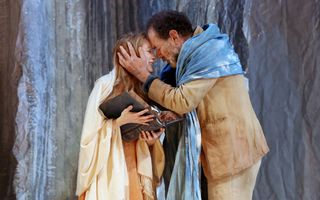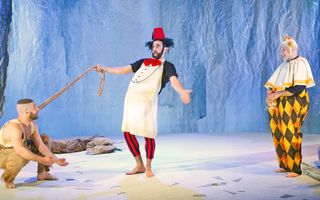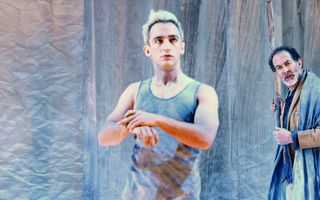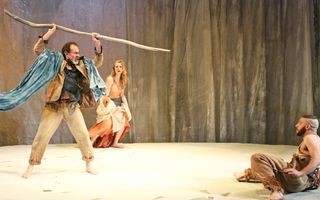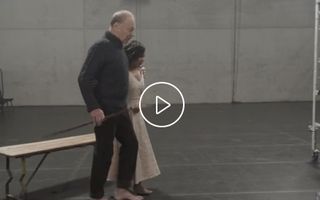 Watch
Watch
“This is some monster of the isle”
The Tempest, Act 2, Scene 2
Caliban and Ariel are not supposed to be ordinary people. Ariel is supernatural, rather than human. Caliban is marked as different enough from the Italians to be exhibited as a monster if brought back to Europe.
How could this be represented in performance? Should Ariel be played as the traditional idea of a fairy, or something entirely different? How would his unusual aspects be shown? In the Victorian period, for example, Ariel was almost always played by a woman, to suggest lightness and flexibility. Is Caliban really monstrous? For example, one English production was criticised because its black Caliban was too handsome, missing the point being made that perhaps what the Europeans call ‘monstrous’ is only difference from themselves.
Students should choose to work on either Caliban or Ariel.
First: go through the text for any lines that give us information about how they look, act, sound, move, smell etc. Write down the extracted quotes, and read them aloud to the class.
Next: create a costume design for the chosen character. Silhouette, colour, texture, makeup, hair and possible masks or prosthetics are all important to consider.
Then: Difference has as much to do with the way someone carries him/herself as the costume worn. Using the speeches below, students should find a way to present the characters with a physicality that shows some kind of difference from ordinary humans. It can be helpful to think in terms of binaries like light/heavy, straight/ bent or twisted, rigid/fluid, quick/slow, smooth/jagged. How wide a variety of ways did they find to move while speaking the lines?
CALIBAN:
Be not afeard. The isle is full of noises,
Sounds, and sweet airs, that give delight, and hurt not.
Sometimes a thousand twangling instruments
Will hum about mine ears; and sometimes voices,
That, if I then had wak’d after long sleep,
Will make me sleep again; and then, in dreaming,
The clouds methought would open and show riches
Ready to drop upon me, that, when I wak’d, I cried to dream again.
The Tempest, Act 3, Scene 2
ARIEL:
Full fathom five thy father lies,
Of his bones are coral made,
Those are pearls that were his eyes,
Nothing of him that doth fade
But doth suffer a sea-change
Into something rich and strange.
Sea-nymphs hourly ring his knell
Hark! now I hear them, Ding-dong, bell.
The Tempest, Act 1, Scene 2
